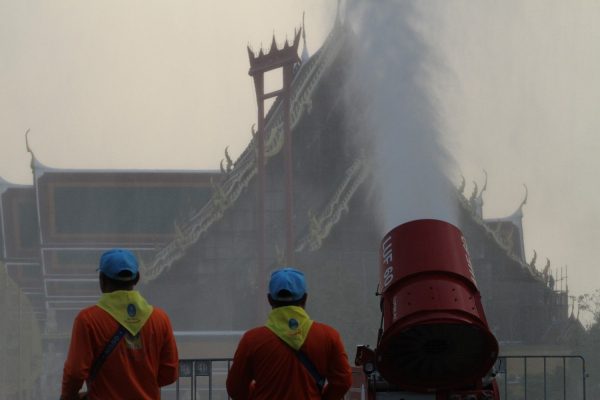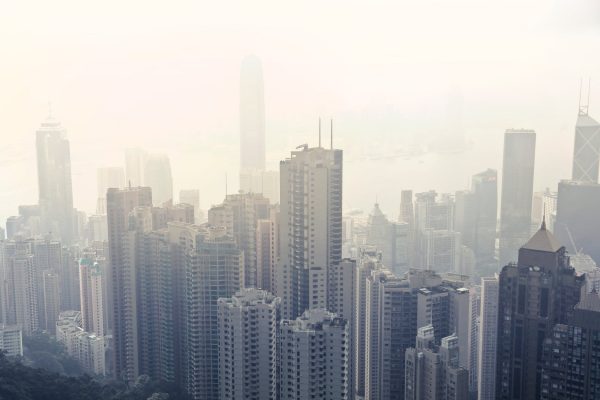BANGKOK, 17 January 2019; The forecast for healthy air in Thailand’s capital is not very reassuring with authorities saying smog conditions in Bangkok could extend to early March.
Bangkok has been plagued with poor air quality since late last year, but levels peaked at new highs, earlier this week.
Now residents and visitors face the prospect of having to wear facemasks, avoid exercise such as biking and running and if the situation deteriorates further it could force the closure of schools.

Still local media reports suggest the authorities have yet to introduce significant measures to combat air pollution, or declare the city a pollution control zone, similar to what is in place in Rayong’s Map Ta Phut and Saraburi’s Kaeng Khoi districts where dust and air pollution threatened public health.
Pollution Control Department (PCD) director-general Pralong Dumrongthai told the Nation newspaper that despite the build up of PM2.5 in Bangkok it was not enough to affect the health of people.
PM2.5 refers to airborne dust particles that are 2.5 micrometers in diameter or smaller. When the number of particles per cubic metre of air rises past 50 micrograms, people’s health is threatened.

According to the PCD, when PM2.5 level exceeds 100 micrograms per cubic metre of air for three consecutive days the situation would be considered critical.
Most of the blame falls in the lap of the city’s notorious traffic, which is estimated to cause 50 and 60% of the problem. But the burning of rice fields surrounding the capital’s suburbs and industrial pollution that goes unchecked are also contributing to the smog.
In the short-term, police are cracking down on vehicles, mostly trucks and city buses, that emit black exhaust fumes. City workers are also hosing down roads with water, while planes are being used to seed clouds with chemicals to cause rain, a measure that has been partly successful, but reliant on favourable wind conditions.
In the long run the country needs to upgrade diesel from Euro4 to the Euro5 standard, but oil refineries balked at the USD400 million bill to rejig each refinery. Even if an agreement could be reached between government and refineries it would take at least three to four years to convert to the cleaner diesel, which would cost another 50 satang per litre at the pumps.
The Pollution Control Department reported that the amount of PM2.5 dust particles (2.5 micron) had exceeded the standard level of 50 microgram/cubic metres in 22 areas along the main roads in and around Bangkok, 15 January.
A high level of 90 microns was detected along Phaholyothin Road in Chatuchak district, close to the popular weekend market, where construction of a train project is under way.
The situation is likely to continue for the rest of the week with just a 10% likelihood of rain over the remainder of the year.






